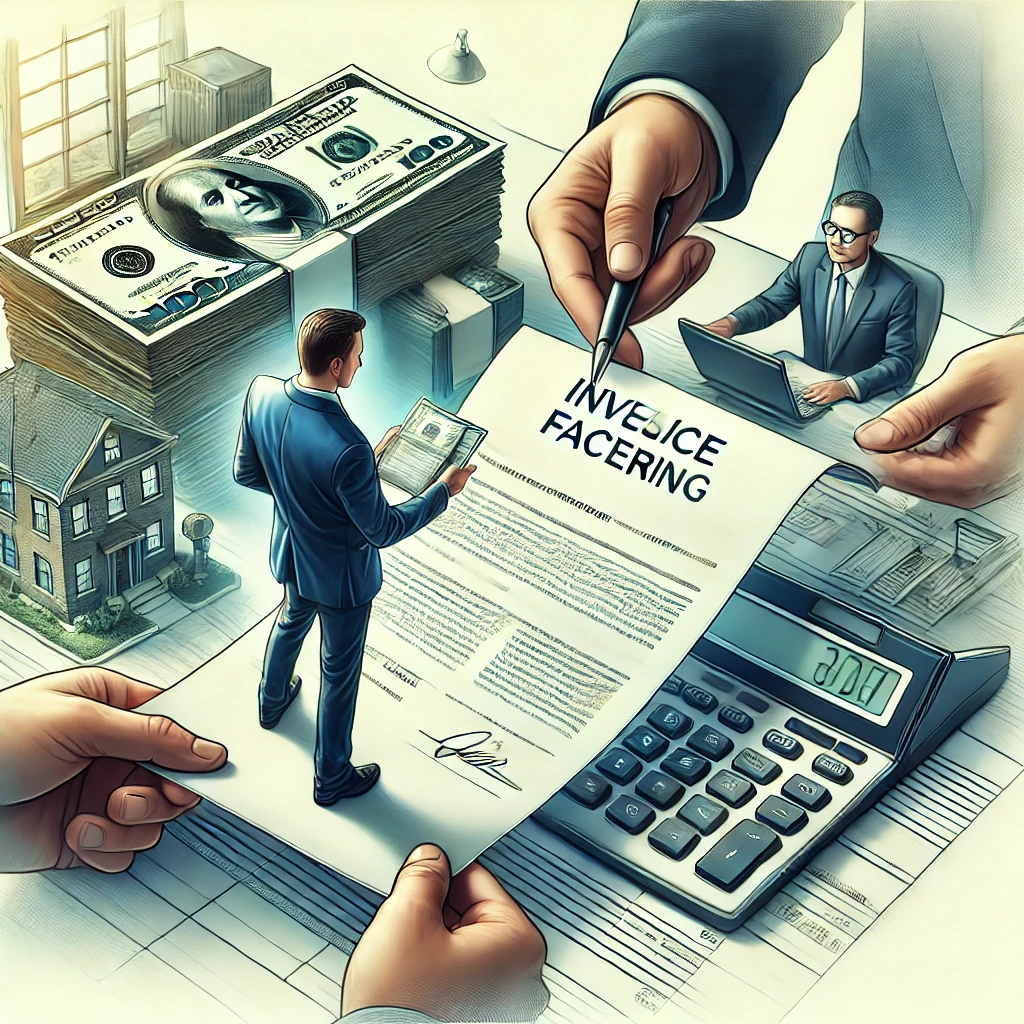The Pros and Cons of Invoice Factoring for Small Businesses

What is Invoice Factoring?
Before diving into the pros and cons, let’s briefly review what invoice factoring entails. Invoice factoring is a financial transaction where a business sells its accounts receivable (invoices) to a third party, called a factor, at a discount. The factor then collects payment from the customers. This process allows businesses to receive immediate cash for their outstanding invoices rather than waiting for customers to pay.
Pros of Invoice Factoring
1. Improved Cash Flow
The most significant advantage of invoice factoring is the immediate improvement in cash flow. Instead of waiting 30, 60, or even 90 days for customers to pay, you can get a large percentage of your invoice value upfront. This influx of cash can be crucial for:
- Meeting payroll obligations
- Purchasing inventory or supplies
- Investing in growth opportunities
- Covering unexpected expenses
2. Quick Access to Funds
Unlike traditional loans that can take weeks or months to process, invoice factoring can provide funds within days. This speed can be invaluable when you need to seize a time-sensitive opportunity or address an urgent financial need.
3. No Debt Creation
Invoice factoring is not a loan; it’s a sale of an asset (your invoices). This means it doesn’t create debt on your balance sheet, which can be beneficial for your company’s financial health and future borrowing capacity.
4. Easier Qualification Process
Factoring companies are primarily concerned with the creditworthiness of your customers, not your business. This can make invoice factoring an accessible option for:
- New businesses without an established credit history
- Companies with less-than-perfect credit
- Businesses that have been denied traditional bank loans
5. Outsourced Credit Control and Collections
Many factoring companies handle collections on the invoices they purchase. This can free up your time and resources, allowing you to focus on core business activities rather than chasing payments.
6. Scalability
As your business grows and generates more invoices, the amount you can factor typically grows too. This scalability can provide the working capital needed to fuel expansion without the need to continually reapply for larger loans.
7. Credit Checks on Customers
Factoring companies often perform credit checks on your customers. This can help you identify potential risks and make informed decisions about extending credit to new or existing clients.

Cons of Invoice Factoring
1. Cost
Invoice factoring is generally more expensive than traditional forms of financing. The fees can vary widely but typically range from 1% to 5% of the invoice value per month. Over time, these costs can add up, potentially impacting your profit margins.
2. Dependence Risk
There’s a risk of becoming too dependent on factoring for cash flow. If you factor all or most of your invoices, it might mask underlying financial issues that need addressing.
3. Customer Perception
Some customers might view your use of factoring negatively, potentially interpreting it as a sign of financial instability. However, as factoring becomes more common, this perception is changing.
4. Loss of Control
When you factor invoices, you’re essentially outsourcing a part of your customer relationship management. The factoring company will be contacting your customers for payment, which means you have less control over these interactions.
5. Potential Impact on Customer Relationships
If a factoring company uses aggressive collection tactics, it could damage your relationships with customers. It’s crucial to choose a factor that aligns with your business values and customer service approach.
6. Not All Invoices May Qualify
Factoring companies may not accept all of your invoices. They typically avoid invoices from high-risk customers or those with past-due balances. This selectivity could leave you still managing some late-paying customers on your own.
7. Complex Contracts
Factoring agreements can be complex, with various fees and terms. It’s important to thoroughly understand the contract, possibly with the help of a financial advisor or lawyer, to avoid unexpected costs or obligations.
8. Recourse vs. Non-Recourse Factoring
With recourse factoring, which is more common, you’re still ultimately responsible if a customer doesn’t pay. This means you might have to buy back unpaid invoices or replace them with collectible ones, potentially creating a financial strain.
Is Invoice Factoring Right for Your Small Business?
Determining whether invoice factoring is suitable for your small business depends on various factors:
- Cash Flow Needs: If you consistently struggle with cash flow due to long payment terms, factoring could be beneficial.
- Business Stage: New businesses or those in rapid growth phases often find factoring helpful for managing working capital.
- Industry: Some industries, like staffing, manufacturing, and transportation, commonly use factoring due to their invoice cycles and capital needs.
- Customer Base: If you have creditworthy customers but long payment terms, factoring can work well.
- Cost-Benefit Analysis: Compare the cost of factoring to the benefits of improved cash flow and potential growth opportunities.
- Alternative Options: Consider how factoring compares to other financing options like lines of credit, short-term loans, or equity financing.

Steps to Get Started with Invoice Factoring
If you decide that invoice factoring could be right for your small business, here are some steps to get started:
- Research Factoring Companies: Look for factors that have experience in your industry.
- Gather Your Information: Prepare your business financials, customer lists, and sample invoices.
- Get Multiple Quotes: Compare offers from several factoring companies to find the best rates and terms.
- Read the Fine Print: Carefully review all contract terms, paying attention to fees, advance rates, and any minimum requirements.
- Start Small: Consider starting with a small batch of invoices to test the process before committing to a long-term arrangement.
- Communicate with Your Customers: If you decide to proceed, inform your customers about the new payment process to ensure a smooth transition.

Conclusion
Invoice factoring can be a powerful tool for small businesses struggling with cash flow issues or looking to fuel growth. It offers quick access to funds, scalability, and the potential for outsourced collections. However, it also comes with costs and potential risks that need careful consideration.
By weighing the pros and cons outlined in this guide against your specific business needs and circumstances, you can make an informed decision about whether invoice factoring is the right financial solution for your small business. Remember, it’s always advisable to consult with a financial advisor or accountant to fully understand the implications of factoring for your unique situation.
Ultimately, if managed wisely, invoice factoring can provide the working capital needed to navigate challenges, seize opportunities, and drive your small business toward success.
